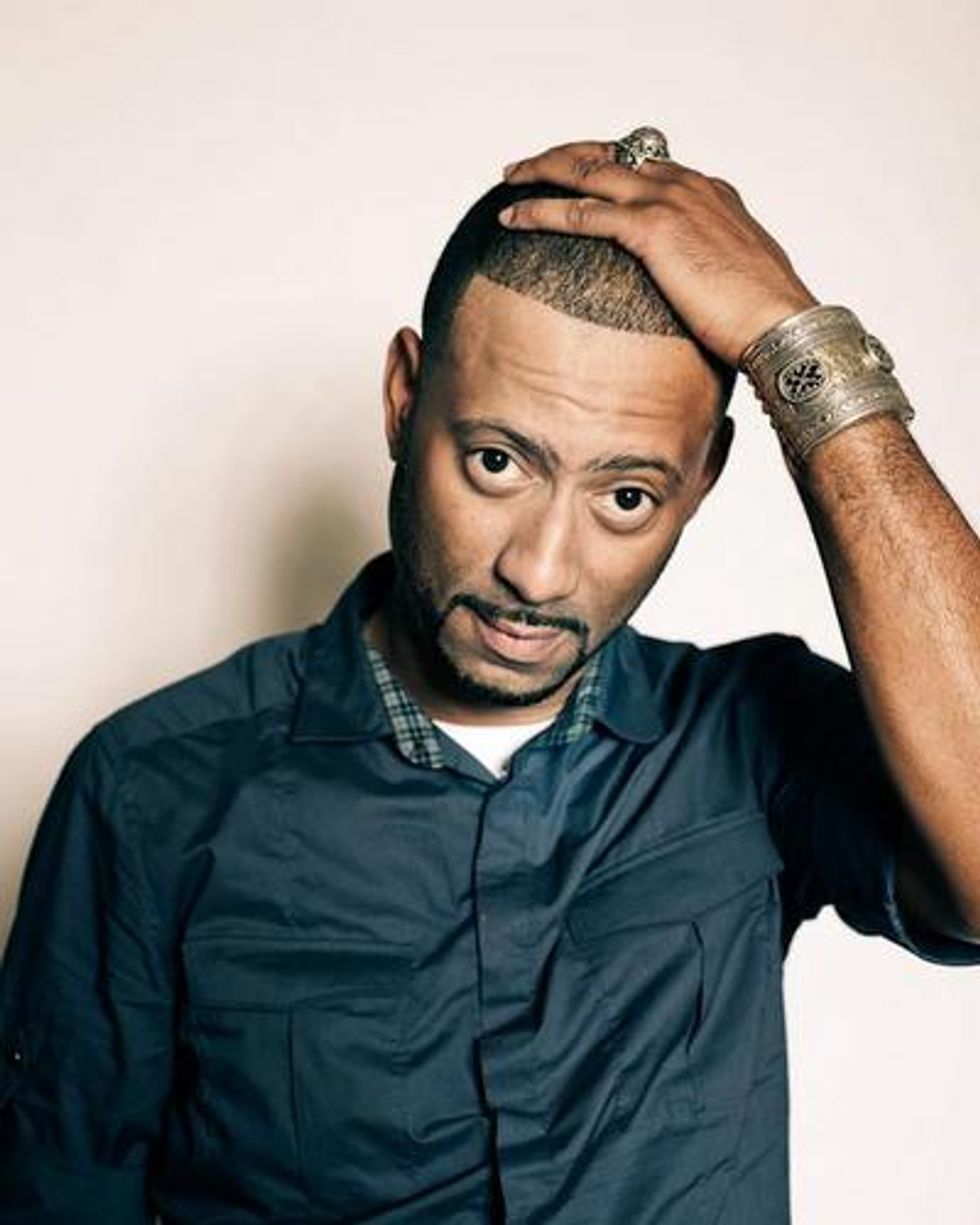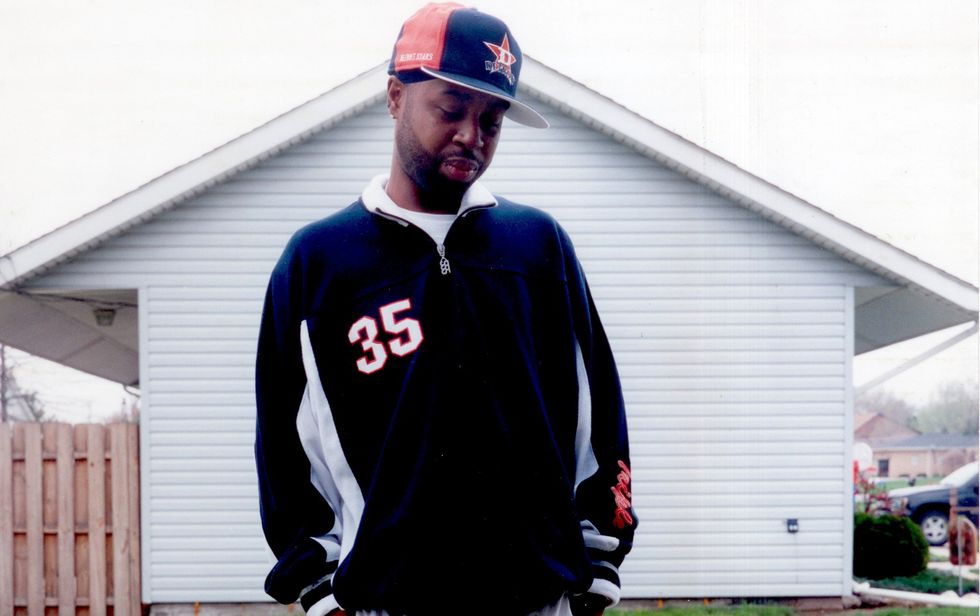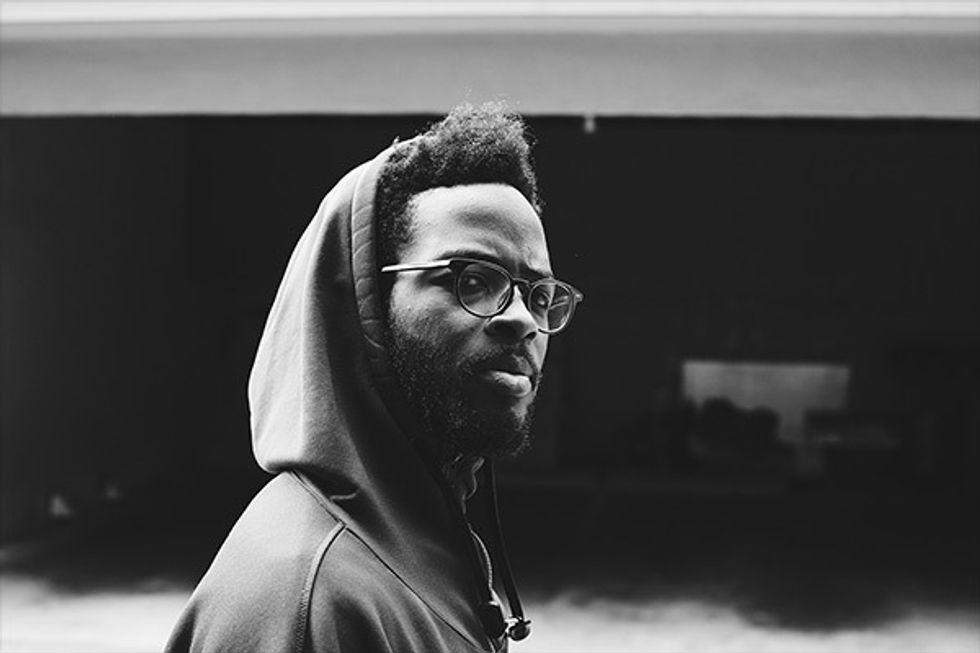On August 11th this year, Google unveiled a creative new doodle game to commemorate the “44th Anniversary of the Birth of Hip-Hop”. With two digital turntables and a crateful of classic music moments, all users were given the power to create their own sparse hip-hop masterpieces.
In fact, it’s a little troubling how easy it may seem to create something so similar to classic hip-hop. Some may even argue that this type of music production is artless. In particular, sampling—the practice of using and manipulating an existing recording in a new track—tends to be a point of contention.
Many feel that the practice of sampling inherently entails stealing by appropriating other artists’ work. On the contrary, I’d argue that the beauty of hip-hop has always been its place in the hands of the people, its accessibility and the possibility to strike gold at any moment. And in regards to sampling, I’d say that this is just a new form of music creation that has caused controversy as all new musical innovation will.
There’s always a tension that comes with musical paradigm shifts, and I’d argue that the discomfort a lot of people have with hip-hop nowadays is another instance of this tension. Sampling has stood the test of time, and in my opinion, has revolutionized not only our notion of what music can be but also a musician’s approach to creating.
Sampling is easy as a process, but as with all musical creation, it’s not necessarily easy to do well. Anyone who spends enough time with Garageband can put an instrumental loop over a drum loop and call it hip-hop. Truly great sampling is when the whole is more than the sum of its parts.
For example, the classic track “Electric Relaxation” by A Tribe Called Quest immaculately marries Ronnie Foster’s calm and jazzy “Mystic Brew” with a sped-up drum break from Brethren’s “Outside Love”. The result is a soulful but grooving masterwork. And this is just an instrumental for MCs to go over. Where sampling gets truly wild and unbelievably innovative is in the vast and beautiful world of instrumental hip-hop.
There are three producers everyone should know when it comes to instrumental hip-hop: Madlib (born Otis Jackson Jr.), J Dilla (born James Dewitt Yancey), and Knxwledge (born Glen Earl Boothe). Let’s start with Madlib.
Madlib is easily one of the most prolific hip-hop producers of all time, and is particularly known for his collaborative efforts with talented rappers like Freddie Gibbs and MF DOOM. Madlib’s sampling is like a smorgasbord of random snippets of sound you may or may not have heard in the past two decades. It’s a layered symphony of anything from everywhere, and it works incredibly well.
I could ramble on about various examples, but I think the best instance regards his 2004 production “ALL CAPS”, off of his collaborative album Madvillainy with MF DOOM. The track features a descending piano loop over a saturated breakbeat, with a flute sample taking over various sections.
The hip-hop world was thrown for a loop (pun not intended), with fans all around the globe desperately trying to figure out where these musical moments were lifted from. As it turns out, the source was finally found in 2014 in background music from the 60s/70s TV series Ironside.
The mystery was put to rest, but Madlib’s genius remains. He still produces nowadays, his most recognizable recent work probably being “No More Parties in L.A.” by Kanye West and Kendrick Lamar. And some of his mysteries still haven’t been solved to date.
Now the late, great J Dilla has earned from many the unofficial title as the greatest sampler of all time. His aesthetic is similar to Madlib, but a little more interesting. While Madlib tends to mix and match numerous sounds into a new product, J Dilla worked on a track-by-track basis.
In other words, what Dilla specialized in was transforming individual tracks into completely new ones. J Dilla’s 2006 album Donuts (named so because it contains a bunch of “sweet loops”) was released shortly before his death; each song contains one main sample, which is clipped up and mixed around to turn into an entirely different piece of music, which recognizably borrows from the original source, but also noticeably feels and moves differently.
Donuts has since been evaluated as one of the greatest hip-hop albums of all time. In what’s now considered one of the greatest sample flips in hip-hop history, in the track “Waves”, Dilla completely transforms the track “Johnny Don’t Do It” by 10cc, into an entirely new groove and progression, with the vocalist now singing “Hey, Johnny, do it”.
The kicker? The track is a message and tribute to Dilla’s younger brother John Yancey, who now raps and performs as Illa J. Donuts is astonishingly organic for an album that was made entirely with a machine—that is, Dilla’s personal digital sampler. Many of the beats were made while Dilla was in the hospital, fighting an incurable blood disease.
It’s the first album I point to for someone who’s looking to get into hip-hop, because I think if anything, it’s the album that proves that sampling can still be very much human.
Knxwledge is one of today’s most popular underground hip-hop producers, despite a lack of much exposure. Mr. Glen Earl Boothe has gained a reputation for his perfectionism and incredibly innovative use of samples and chopping to create astonishing, mind-melding hip-hop rhythms.
His most renowned production is probably on the track “Momma” by Kendrick Lamar, which itself is a light remix of Knxwledge’s original instrumental, “so[rt]”. This track samples Lalah Hathaway’s “On Your Own”, but you wouldn’t dare know it unless you were told so. Each track by Knxwledge is like Dilla on steroids.
My personal favorite Knxwledge album, Hud Dreems, consists of 26 bombastic but beautiful flips that show the most unconventional of sampling. And the tracks flow between each other so well that it wouldn’t be hard to believe Knxwledge produced the entire album as on 36 minute song and just broke it down wherever he felt fit.
Any work by Knxwledge is an unbelievable feat, and I can’t even begin to describe what his work sounds like. Really. The best thing I can do, in full honesty, is just to tell you to listen to his music. And Knxwledge is kind of hit-or-miss, purely because he is so unorthodox, but he has blown me and many others away with his constant innovation and his immaculate offbeat discography.
Sampling definitely sounds troublesome at first, but as a practice, it has yielded some of the greatest musical works of our time and has made so much possible in terms of the future soundscape. And by the way, in case you’re wondering what the future sounds like, I bet it’s a lot like Flying Lotus’s Cosmogramma, a 2010 tour de force that maybe no other artist will ever match in terms of utter unusualness.
The track “Zodiac Shit” is a staggering masterpiece that I can barely comprehend when I listen to it. It’s just unbelievable that one man, even with samples, was able to create this track. Same deal with DJ Shadow's 1996 game-changer Endtroducing....., the first album entirely produced with samples. It's a profound and very interesting instrumental album that everyone should check out.
But rather than turning to the music of the future, I’d like to end my discourse with the music of the now, particularly with a discussion of one of the most controversial music figures of this day and age, and perhaps of all time.
Kanye West nowadays might be more renowned for his media reputation than for his musical work, which is honestly quite sad, considering Kanye was an instrumental figure in hip-hop history, breaking through to the mainstream with his soulful mix of gospel samples and whole-hearted musical elements.
Kanye West is a musician who really understands why he makes music—to push and define the boundaries of a genre that’s constantly developing. And with each album he’s offered up, he’s done nothing less. His 2004 debut, The College Dropout was a landmark record, his unique brand of sampling turning the musical world on its head.
In 2005, he released what’s perhaps my favorite album of all time, Late Registration, which is an album that combines soul samples with grand instrumentation and opulent arrangements. Each track is built around a traditional sampled center, but West enlisted the help of film composer Jon Brion so they could add orchestral parts and blend the samples with original composed elements, creating a fine, fine album.
Not only that, but the samples he used have particular meaning, like in "Gold Digger" where he subverts Ray Charles's words in "I Got A Woman" to turn it into an ironic statement about superficial relationships. 2007’s Graduation works further with Kanye’s foray into making his own arrangements, as he started to experiment with synthesizers and more digital elements, a headspace that he fully launched into with 808s and Heartbreak in 2008, although he never quite left sampling out of the mix. In particular, “Good Morning” on Graduation features a vocal riff from Elton John’s “Someone Saved My Life Tonight”.
And then along came My Beautiful Dark Twisted Fantasy in 2010. Widely considered Kanye’s greatest album and one of the greatest albums of all time (and for good reason), MBDTF is a cornerstone in the history of hip-hop, an audacious statement of grandiloquence, intentionally and unabashedly maximalist.
The innovation here was like that of Late Registration, but with no restraint. It was Kanye exploding with countless unforgettable musical moments, samples mixed in like never before. Every track is built off of samples and with real live instruments, particularly a lot of singers, and it’s something absolutely breathtaking.
His 2013 effort Yeezus was the opposite—abrasive, minimal, and violently focused—but still breathtaking. It pushed the envelope into new territory, samples mixed into brilliantly in-your-face instrumentals. It even garnered a rave review from classic rock musician Lou Reed.
And with his latest work, The Life of Pablo, Kanye has again challenged musical convention with scarcity and as always, great musical arrangements, and it’s never felt more human. And with each project and each hit song, Kanye pushes sampling further into the lifeblood of popular music.
He’s a very powerful artist, and even though he may not be the most innovative or greatest sampler of all time, he’s certainly used sampling to inspire a whole new generation of music, and there’s no place I’d rather be than at the forefront of these musical developments.
If you're looking to check out great instances of sampling, boy oh boy do I have some recommendations for you. Not all of these are instrumental albums, but some of them have great instances of sampling.
Donuts by J Dilla
Kauliflowr by Knxwledge
Hud Dreems by Knxwledge
Late Registration by Kanye West
Give Me My Flowers While I Can Still Smell Them by Blu and Exile
99.9% by Kaytranada
Madvillainy by Madvillain
Piñata by Madlib and Freddie Gibbs
Endtroducing..... by DJ Shadow
Illmatic by Nas
Lucky 7 by Statik Selektah
B4.Da.$$ by Joey Bada$$
Black on Both Sides by Mos Def
Deadringer by RJD2
The Ecstatic by Mos Def (in particular, I think that the track "Auditorium", produced by Madlib, is one of the greatest sample uses of all time, it's just amazing).





















